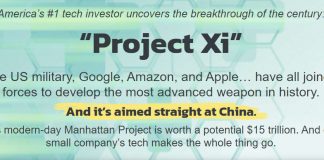Ten years ago, no one had heard of “blockchain”. Over the last five years, however, blockchain has been one of the biggest trends in tech.
Investors who believe in the future of blockchain may want to invest today.
Some of the world’s biggest companies have already invested in blockchain, and major companies like Airbnb and Netflix now accept crypto payments.
Blockchain is already a multi-billion dollar industry – but it could become even larger in the future.
Today, we’re listing the best blockchain stocks, including the top blockchain companies for investors in 2020.
See the Number One Blockchain Stock Investment Newsletter Here
Contents
- 1 Why Blockchain?
- 2 Best Blockchain Stocks of 2020
- 2.1 IBM (IBM)
- 2.2 Bank of America (BAC)
- 2.3 CME Group (CME)
- 2.4 Alibaba Group (BABA)
- 2.5 Square (SQ)
- 2.6 Fujitsu (FJTSY)
- 2.7 Microsoft (MSFT)
- 2.8 Mastercard (MA)
- 2.9 HIVE Blockchain Technology (HIVE)
- 2.10 Broadridge (BR)
- 2.11 Coinsilium Group (COIN)
- 2.12 Grayscale Investment Trust (GBTC)
- 2.13 Innovation Shares NextGen Protocol ETF (KOIN)
- 2.14 ING Groep (INGA)
- 2.15 Reality Shares Nasdaq NexGen Economy ETF (BLCN)
- 2.16 First Trust Indxx Innovative Transaction & Process ETF (LEGR)
- 2.17 BitFarms (BITF)
- 2.18 Hut 8 (HUT)
- 2.19 AMD (AMD)
- 2.20 NVIDIA (NVDA)
- 2.21 Riot Blockchain, Inc. (RIOT)
- 2.22 PayPal (PYPL)
- 3 Final Word: Is Blockchain the Next Bitcoin or Pot Stock?
Why Blockchain?
Blockchain isn’t a single technology. Instead, blockchain is a broad term for a type of distributed ledger technology.
When we say “invest in blockchain”, it’s like saying “invest in internet”. People use blockchain in different ways, and you can invest in blockchain across multiple industries.
Some companies are using blockchain to revolutionize healthcare, for example, while others are using blockchain to improve logistics. Some are creating video games using blockchain, while others are launching advertising engines.
Some of the world’s smartest developers are building blockchain technology. The technology continues to improve. Some of these developers are sharing their technology with the world via open source projects. Other developers are working in-house at private corporations, seeking to give their corporation the edge in a competitive space. Teeka Tiwari, creator of the 5 coins to $5 Million newsletter, is also extremely bullish on blockchain stocks like ICE, Square and Nvidia.
As blockchain continues to grow and improve, it becomes more usable for different industries. Companies will use any technology to get ahead – and if blockchain can help them get an edge, then they’re going to use blockchain.
Here are some of the areas that blockchain is already disrupting:
- Banking
- Financial
- Voting
- Infrastructure
- Pharmaceuticals
- Fashion
- Cross-Border Payments
- Food Safety
- Logistics
- Jewelry
- Gaming
- Ridesharing
- Internet Advertising
- Cloud Storage & Cloud Computing
- Copyright
- Trading
- Insurance
- Healthcare
- And More
These are just a few of the industries being transformed by blockchain already. And here’s the thing: blockchain technology is only going to get better. We’re already seeing blockchain-related benefits in the industries above: what are these benefits going to look like after 5 years or 10 years of blockchain development?
With that in mind, let’s take a look at some of the publicly-traded companies that are using, developing, or benefiting from blockchain technology.
Best Blockchain Stocks of 2020

Blockchain stocks come in all shapes, sizes, and forms. Here are the best blockchain stocks of 2020.
IBM (IBM)

IBM has been a giant in the tech industry for decades. The company continues to lead the way in blockchain. The IBM Blockchain Platform has already secured hundreds of clients from a diverse selection of industries. Meanwhile, the IBM Cloud is used to manage the company’s blockchain as a service (BaaS), which monitors and securely stores transactions for business clients.
IBM has one of the largest blockchain patent portfolios among all publicly traded companies. IBM could generate billions of dollars through licensing deals, allowing others to use these patents in their own blockchain technology systems.
As further testament to IBM’s commitment to blockchain, Forbes recently awarded the company a Blockchain Score of 92, higher than any other company. Forbes praised IBM for its involving in more than 500 blockchain projects, including the IBM Food Trust platform it launched with Walmart in 2018.
All of these factors should help IBM position itself as a leader of the blockchain space for decades to come.
Bank of America (BAC)
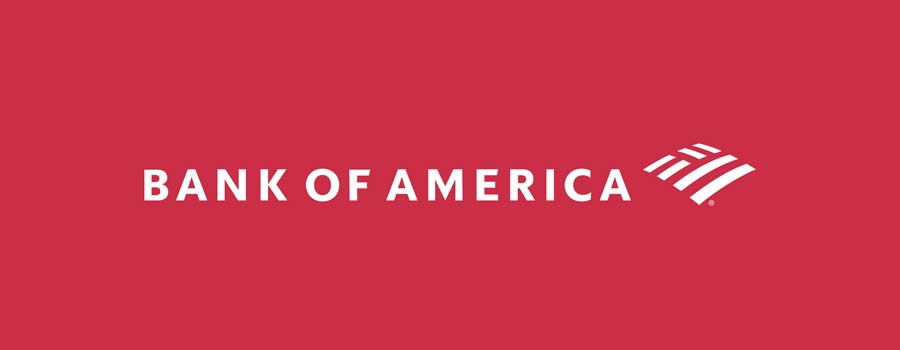
Many are surprised to discover that Bank of America has an extensive portfolio of blockchain patents. The American banking giant has quietly collected a portfolio of blockchain and related patents. In fact, as of 2020, Bank of America has more blockchain patents than Google or Microsoft. Today’s Bank of America investors might reap rewards not just from banking services, but also from blockchain.
Just like with IBM, Bank of America could earn blockchain-related revenue simply by owning patents: owning the right patents can generate billions of dollars per year through licensing deals.
There’s a reason that Bank of America appears on virtually every list of “best blockchain companies for investors”: the banking giant seems more invested in blockchain than any other American bank.
CME Group (CME)

CME Group is the leading platform for bitcoin futures. Thanks to CME Group, investors can speculate on the future price of bitcoin, buying and selling bitcoin futures contracts in a regulated environment.
CME Group made headlines for being among the first to launch bitcoin futures back in December 2017. However, bitcoin futures make up a small percentage of the company’s overall trading operations. Nevertheless, CME Group expects to continue earning significant profits through bitcoin futures, and the launch of new products like Ethereum futures could reap further rewards.
CME Group also pays a dividend of around 5%, allowing blockchain investors to add some passive income to their portfolio.
Alibaba Group (BABA)

Alibaba Group is one of many companies on this list whose operations lie mostly outside of blockchain. However, because Alibaba is so big, any investment in blockchain is inevitably a big deal.
Alibaba has filed 100+ patents for blockchain technology to date. In fact, by late 2018, Alibaba had filed more blockchain patents than IBM.
Alibaba has already implemented several blockchain solutions. Lynx International, a subsidiary of Alibaba, integrated blockchain into its logistics division. T-Mall, another Alibaba company, also uses blockchain to combat counterfeiting and food adulteration.
What’s even more promising is that Alibaba has teamed up with the Chinese government to use blockchain in healthcare. In the future, Alibaba’s healthcare blockchain solutions could help manage the healthcare needs of more than 1.3 billion people. There’s also Ant Financial, an Alibaba partner that recently launched a blockchain remittance service in Hong Kong.
We haven’t even talked about Alibaba’s blockchain as a service (BaaS), which has recently started to expand outside of China. For all of these reasons, Alibaba could easily become the blockchain technology leader of Asia.
Square (SQ)

Hardware and software payment processor Square is best-known for managing card payments for businesses. However, the company has had a longstanding relationship with blockchain and crypto technology.
Square has even expanded into the business lending and peer-to-peer payment space via Square Capital and Cash App. Today, Cash App continues to be one of Venmo’s biggest competitors, and Square is positioned to continue being a payment giant in the coming years.
Where blockchain investors can really get excited, however, is with Square Crypto. Square has created a special department just for crypto called Square Crypto. The goal of the department is to continue building and improving bitcoin’s network.
Plus, Square has already integrated bitcoin transactions into the Cash App, making it easier than ever to transfer bitcoin between users.
Square processes about $100 billion of gross payments every year. Analysts expect Square to keep growing, improving both its payment volume and its blockchain support over the coming years.
Fujitsu (FJTSY)

Fujitsu is a Japanese technology firm that is often overlooked by American-centric blockchain stock articles. The majority of blockchain development occurs outside of the United States, and smart investors scan international markets for blockchain investment opportunities.
Fujitsu is no secret stock: it’s the world’s seventh largest IT services provider, and it’s the top IT company in Japan. However, it may be overlooked by western investors focusing on the top names on our list.
In terms of blockchain development, Fujitsu was chosen as a vendor for the development of a transfer settlement system for the Japanese Bankers Association’s (JBA) Collaborative Blockchain Platform. Fujitsu has also launched a Blockchain Innovation Center in Belgium while working on dozens of other small and large blockchain projects.
Microsoft (MSFT)

Microsoft has been a blue chip stock for decades. The tech behemoth is also well positioned to be a blockchain leader moving forward.
Microsoft’s Azure cloud uses blockchain technology, and the company’s blockchain as a service (BaaS) is used by Nasdaq, AT&T, and other mega corporations. Azure is built on Ethereum. As Ethereum continues to grow and improve over the years, Microsoft’s Azure cloud platform may become more usable.
Optimistic investors believe Azure will one day rival Amazon for cloud-based app hosting. Microsoft has been developing its BaaS since 2015, although blockchain development activity has increased significantly since 2018.
Mastercard (MA)

Credit card giant Mastercard may seem like an odd pick on the list of blockchain stocks. Isn’t bitcoin supposed to disrupt traditional payment solutions like Mastercard?
That may be partially true, but Mastercard is still well positioned to take advantage of the blockchain revolution. The company is exploring the use of blockchain technology to increase the speed and efficiency of transactions, lowering transaction costs and reducing the risk of fraud. Mastercard loses over $23 billion to fraud every year, and a good blockchain solution could help.
Mastercard has also shown a willingness to participate in the blockchain space. The company created APIs through which developers can build blockchain related applications, for example. Overall, Mastercard is positioning itself to not only avoid blockchain disruption, but to take advantage of the blockchain revolution.
HIVE Blockchain Technology (HIVE)

HIVE Blockchain Technology was formerly known as Leeta Gold Corp. The Canadian company has partnered with a number of blockchain companies, including crypto miners. By investing in HIVE, you can indirectly invest in blockchain mining.
One of HIVE’s main partners is Genesis Mining Ltd., a prominent cloud bitcoin miner with operations in Iceland. HIVE has also partnered with miners in Sweden and Norway.
HIVE’s shares have been on a rough patch in recent years. In 2017, HIVE’s stock price followed the rise of bitcoin, rising from $0.10 in May 2017 to a high of $4.71 by November 2017. Within a year, the share price had fallen back down to $0.30, which is where it’s mostly remained. As of March 2020, you can buy HIVE for around $0.20.
Broadridge (BR)
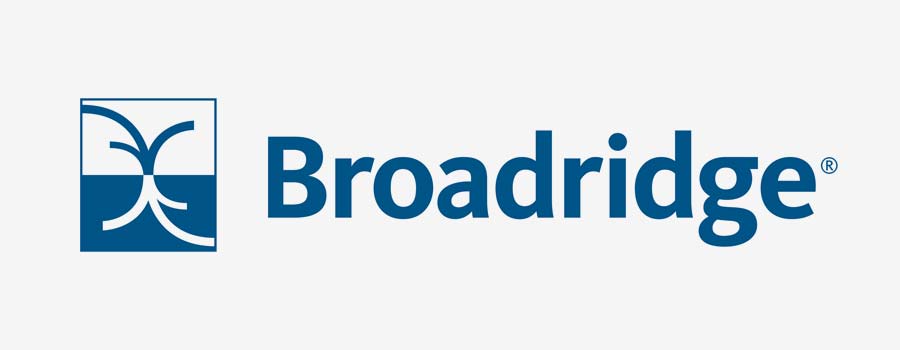
Broadridge has partnered with banks like Northern Trust and JPMorgan that use blockchain technology. The company also offers several distributed ledger technology solutions of its own, including proxy voting that allows shareholders to securely vote on specific issues.
Broadridge’s partners include some of the world’s biggest banks. Investors who believe in the power of blockchain to disrupt the banking sector may want to look at Broadridge.
Coinsilium Group (COIN)

Coinsilium Group (COIN) is a blockchain developer, investor, and accelerator launched in 2014. The London-based company mostly partners with clients in the United Kingdom.
Today, COIN invests and supports plenty of blockchain or crypto-based companies. You can buy the company’s shares on the NEX Exchange Growth Market, which is the primary market for unlisted securities operated by NEX Exchange. On this market, Coinsilium trades under the symbol COIN, although it’s traded as CINGF on over the counter markets (OTCMKTS).
Grayscale Investment Trust (GBTC)
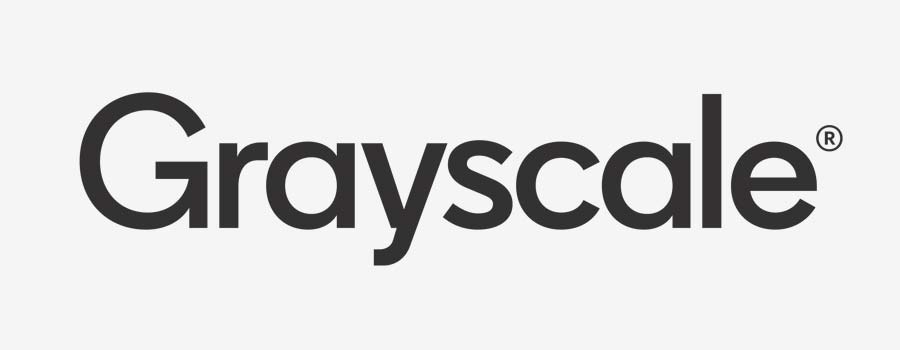
The Grayscale Investment Trust, which originally launched as the Bitcoin Investment Trust all the way back in 2013, is one of the few publicly-traded companies that stores bitcoin as its primary asset. By investing in the Grayscale Investment Trust, you are indirectly investing in the value of bitcoin – but in a different way than holding bitcoin yourself.
If you like the idea of bitcoin but don’t want to hold bitcoin yourself, then the Grayscale Investment Trust may be a good solution. As blockchain technology improves, bitcoin becomes more usable, which should cause the value to rise.
The fund continues to attract the attention of investors as it grows: on January 21, 2020, the Grayscale Bitcoin Trust became an SEC reporting company, registering its shares with the SEC and designating the Trust as the first digital currency investment vehicle to attain the status of a reporting company by the SEC.
As of September 11, 2019, the Grayscale Investment Trust had approximately $2.16 billion in assets under management. The main catch? There’s a minimum investment of $50,000 and an annual fee of 2%.

Innovation Shares NextGen Protocol ETF (KOIN) is the first blockchain ETF on this list. KOIN has a high expense ratio (0.95%), although it has recorded strong growth in recent years and pays a dividend of around 1.5%.
Shares LLC launched KOIN in January 2018. By the end of the year, it had earned returns of around 30%. KOIN invests in technology stocks in developed markets around the world, focusing on both growth and value stocks. The fund’s top three companies include Intel (INTC), Microsoft (MSFT), and Salesforce (CRM). With KOIN, you’re not strictly investing in blockchain technology, although you may still reap benefits as tech giants implement blockchain.
ING Groep (INGA)
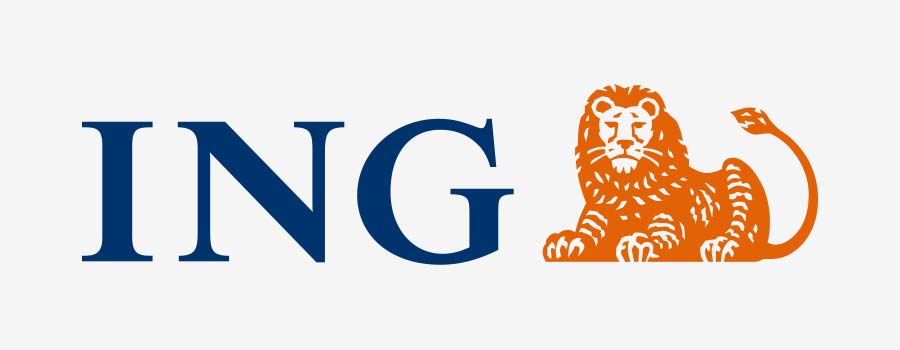
Dutch banking and financial services giant ING Groep has heavily invested in blockchain since 2017, when the corporation partnered with Easy Trading Connect (ETC), a platform for trade finance in commodities.
Today, the company has 50+ blockchain concept projects on-the-go, including blockchain tools for client data privacy, collateral lending, physical commodity provenance, debt tracking, and more.
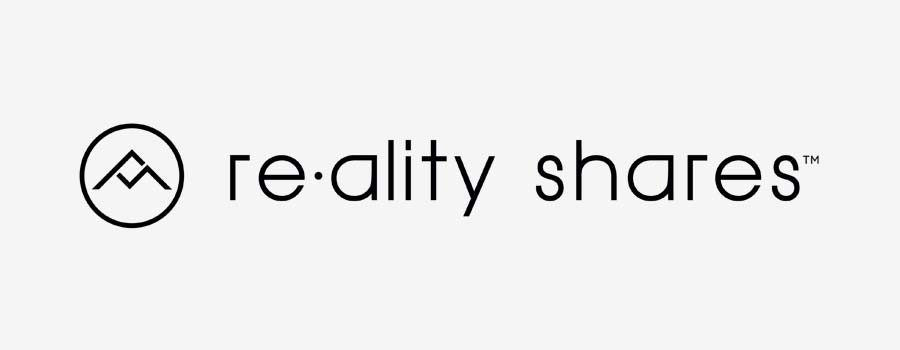
Reality Shares Nasdaq NexGen Economy ETF (BLCN) is one of a handful of ETFs allowing investors to benefit directly from blockchain. The company has experienced rapid growth in recent years and pays a dividend of around 1 to 2%.
BLCN is a large cap ETF that invests in some of the top technology companies available today, including a mix of growth and value stocks. Two of the company’s top three holdings are blockchain companies on this list, including Microsoft and Fujitsu (the third is semiconductor company AMD).
If you want to reap profit from the rise of blockchain and bitcoin, then BLCN may be a convenient entry point.
First Trust Indxx Innovative Transaction & Process ETF (LEGR)
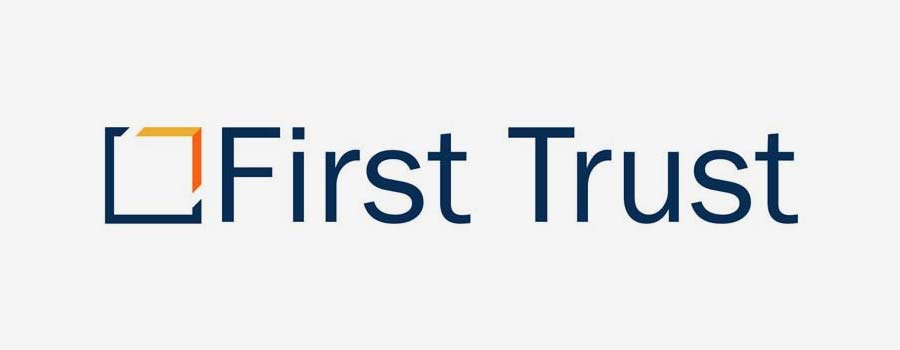
LEGR is a large cap ETF that invests in technology stocks in developed markets worldwide. Like BLCN Above, LEGR uses a blended strategy, investing in both growth and value stocks.
The two funds invest in similar companies: the top three holdings of LEGR include AMD, Fujitsu, and NVIDIA Corp. It pays a slightly higher dividend than LEGR (2%).
BitFarms (BITF)
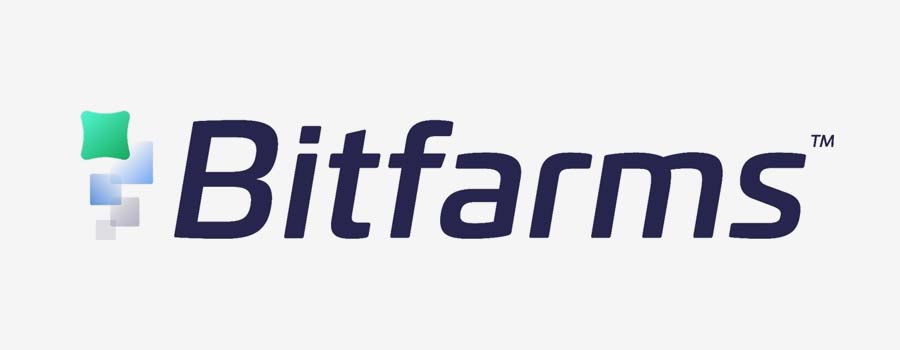
Canada-based BitFarms owns and operates several bitcoin mining farms. Today, BitFarms has multiple bitcoin mines across Quebec, where it takes advantage of cheap real estate and endless hydroelectric power. Because of these advantages, BitFarm can mine bitcoin at a price significantly lower than the cost of 1 BTC while also undercutting competing bitcoin miners.
The company has reported mining profits as high as 18%, and it plans to continue expanding operations over the coming months. You can find BitFarms on TSX Venture under BITF (TSXV:BITF).
Hut 8 (HUT)

Hut 8 is the third Canada-based crypto mining firm on our list. The company’s stock is listed on the TSX under HUT (TSX:HUT). Like BitFarms, Hut 8 takes advantage of cheap real estate and electricity prices in rural Canada. While BitFarm is based in Quebec, Hut 8 is based in Alberta, maintaining mining farms in Drumheller and Medicine Hat.
There’s reason to get excited about Hut 8. The company has partnered with BitFury, which makes bitcoin mining hardware and software. As part of this partnership BitFury owns approximately 50% of all Hut 8 shares.
Another unique advantage of Hut 8 is that it’s listed on the main Toronto Stock Exchange (TSX) instead of the TSX Venture exchange, giving this crypto mining company an added degree of legitimacy.
AMD (AMD)
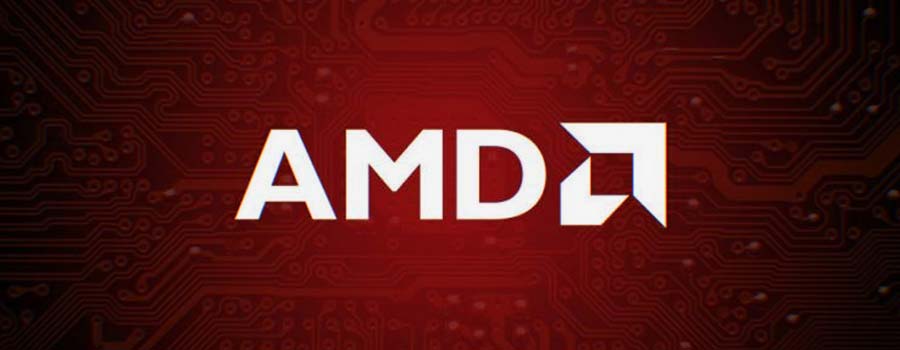
Advanced Micro Devices (AMD) has been on the list of “blockchain stocks to watch” for years. AMD makes microchips, including the chips used in crypto miners and GPUs. As crypto miners scooped up billions of dollars of mining hardware in 2017 and 2018, AMD (and competitor NVIDIA) earned enormous revenue.
Today, AMD continues to be a popular stock for those who believe in the future of blockchain. Of course, AMD is supported by much more than just blockchain and crypto mining, and they’re one of the world’s largest chip makers for a reason.
NVIDIA (NVDA)

If you believe in AMD, then you may believe in competing chipmaker NVIDIA as well. As one of the biggest GPU manufacturers in the world, NVIDIA also profited enormously from the rise of bitcoin mining.
Moving forward, NVIDIA is expected to continue expanding by making chips for the internet of things (IoT) space, artificial intelligence apps, autonomous vehicles, and more.
Riot Blockchain, Inc. (RIOT)
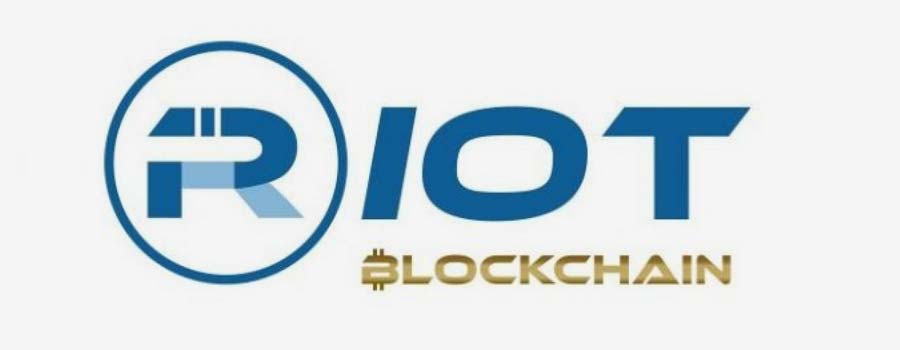
Riot Blockchain’s stock has followed a similar trajectory to many other stocks on this list: the stock skyrocketed in 2017, plummeted in 2018, and continues to be relatively cheap today compared to its previous highs.
The company now known as Riot Blockchain was founded all the way back in 2000. Today, the company is focused on building, supporting, and operating blockchain technologies. They’re particularly focused on using blockchain to revolutionize the transaction space, partnering with companies like Coinsquare, Verady, and TessPay. Riot has also partnered with certain bitcoin miners.
PayPal (PYPL)

PayPal may seem like an unusual company to see on a list of the best blockchain stocks. However, PayPal has recently started investing in blockchain.
In April 2019, PayPal announced its first ever investment in a blockchain technology company, participating in the Series A funding round for Cambridge Blockchain, a startup that helps financial institutions and other companies manage payments with blockchain.
In March 2020, it was revealed that PayPal is seeking a blockchain expert to identify use cases for financial crimes and fraud prevention.
PayPal isn’t a traditional blockchain investment. However, the company has showed a willingness to participate in the blockchain space, and it may be a good contrarian bet against bitcoin moving forward.
Final Word: Is Blockchain the Next Bitcoin or Pot Stock?
Everyone wishes they bought bitcoin in 2009. Is blockchain the next bitcoin or pot stock? Will investing in blockchain today lead to significant rewards in the future?
It’s certainly possible. Nobody knows where blockchain technology is going to go next. However, the publicly-traded stocks listed above are some of the leaders in the young blockchain space already – and they could be even more dominant after 5 to 10 years of blockchain development.
See the Number One Blockchain Stock Investment Newsletter Here










